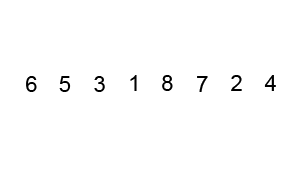- algorithm-reading
- leetcode/lintcode题解/算法学习笔记
- 1. Part I - Basics
- 2. Data Structure
- 3. Basics Sorting
- 4. Basics Misc
- 5. Part II - Coding
- 6. String - 字符串
-
7.
Integer Array - 整型数组
- 7.1. Remove Element
- 7.2. Zero Sum Subarray
- 7.3. Subarray Sum K
- 7.4. Subarray Sum Closest
- 7.5. Product of Array Exclude Itself
- 7.6. Partition Array
- 7.7. First Missing Positive
- 7.8. 2 Sum
- 7.9. 3 Sum
- 7.10. 3 Sum Closest
- 7.11. Remove Duplicates from Sorted Array
- 7.12. Remove Duplicates from Sorted Array II
- 7.13. Merge Sorted Array
- 7.14. Merge Sorted Array II
- 7.15. Median
-
8.
Binary Search - 二分搜索
- 8.1. Binary Search
- 8.2. Search Insert Position
- 8.3. Search for a Range
- 8.4. First Bad Version
- 8.5. Search a 2D Matrix
- 8.6. Find Peak Element
- 8.7. Search in Rotated Sorted Array
- 8.8. Find Minimum in Rotated Sorted Array
- 8.9. Search a 2D Matrix II
- 8.10. Median of two Sorted Arrays
- 8.11. Sqrt x
- 8.12. Wood Cut
- 9. Math and Bit Manipulation - 数学技巧与位运算
-
10.
Linked List - 链表
- 10.1. Remove Duplicates from Sorted List
- 10.2. Remove Duplicates from Sorted List II
- 10.3. Remove Duplicates from Unsorted List
- 10.4. Partition List
- 10.5. Two Lists Sum
- 10.6. Two Lists Sum Advanced
- 10.7. Remove Nth Node From End of List
- 10.8. Linked List Cycle
- 10.9. Linked List Cycle II
- 10.10. Reverse Linked List
- 10.11. Reverse Linked List II
- 10.12. Merge Two Sorted Lists
- 10.13. Merge k Sorted Lists
- 10.14. Reorder List
- 10.15. Copy List with Random Pointer
- 10.16. Sort List
- 10.17. Insertion Sort List
- 10.18. Check if a singly linked list is palindrome
- 11. Reverse - 翻转法
- 12. Binary Tree - 二叉树
- 13. Binary Search Tree - 二叉搜索树
- 14. Exhaustive Search - 穷竭搜索
- 15. Dynamic Programming - 动态规划
- 16. Appendix I Interview and Resume
Bubble Sort - 冒泡排序
核心:冒泡,持续比较相邻元素,大的挪到后面,因此大的会逐步往后挪,故称之为冒泡。

Implementation
Python
#!/usr/bin/env python
def bubbleSort(alist):
for i in xrange(len(alist)):
print(alist)
for j in xrange(1, len(alist) - i):
if alist[j - 1] > alist[j]:
alist[j - 1], alist[j] = alist[j], alist[j - 1]
return alist
unsorted_list = [6, 5, 3, 1, 8, 7, 2, 4]
print(bubbleSort(unsorted_list))
Java
public class Sort {
public static void main(String[] args) {
int unsortedArray[] = new int[]{6, 5, 3, 1, 8, 7, 2, 4};
bubbleSort(unsortedArray);
System.out.println("After sort: ");
for (int item : unsortedArray) {
System.out.print(item + " ");
}
}
public static void bubbleSort(int[] array) {
int len = array.length;
for (int i = 0; i < len; i++) {
for (int item : array) {
System.out.print(item + " ");
}
System.out.println();
for (int j = 1; j < len - i; j++) {
if (array[j - 1] > array[j]) {
int temp = array[j - 1];
array[j - 1] = array[j];
array[j] = temp;
}
}
}
}
}
复杂度分析
平均情况与最坏情况均为 , 使用了 temp 作为临时交换变量,空间复杂度为 .